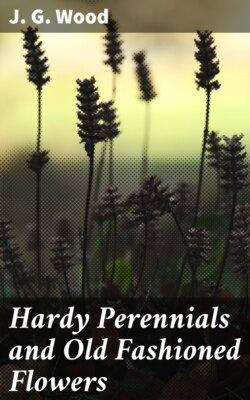Читать книгу Hardy Perennials and Old Fashioned Flowers - J. G. Wood - Страница 34
На сайте Литреса книга снята с продажи.
Arabis Lucida.
ОглавлениеTable of Contents
Shining Rock Cress; Nat. Ord. Cruciferæ.
This member of a well-known family of early spring flowers is desirable, for its neat habit and verdancy. There is not a particle of sere foliage to be seen, and it has, moreover, a glossy appearance, whence the specific name. The flowers are not of much effect, though, from their earliness, not without value; they are in the way of the flowers of the more common species, A. alpina, but less in size; they are also more straggling in the raceme; these two features render it inferior as a flower; the stalks are 3in. to 6in. high. The leaves are arranged in lax flattened rosettes, are 1in. to 3in. long, somewhat spathulate, notched, fleshy, of a very dark green colour, and shining. The habit is dense and spreading, established tufts having a fresh effect. Though an Hungarian species, it can hardly have a more happy home in its habitat than in our climate. Where verdant dwarf subjects are in request, either for edgings, borders, or rockwork, this is to be commended as one of the most reliable, both for effect and vigour. In the last-named situation it proves useful all the year round, but care should be taken that it does not overgrow less rampant rock plants.
A. l. variegata is a variety with finely-marked leaves. The bloom resembles that of the type, but is rather weaker. It is better to remove the flowers of this kind, as then the rather slow habit of growth is much improved, as also is the colour of the foliage. The leaves being more serviceable and effective than the bloom, the uses should be made of it accordingly. They are broadly edged with yellow, the green being lighter than that of the type, but equally bright; the ends of the leaves are curled backwards, but, with the exception of being a little smaller, they are similar in shape to the parent form. This is a gem for rockwork, and, if it did not belong to a rather ordinary race of plants, it would, perhaps, be more often seen in choice collections. This, however, does not alter its worth. Seen in crevices of dark stone on rockwork, or in bold tufts near the walks, or planted with judgment near other dwarf foliaged subjects, it ever proves attractive. It is much less rampant, and, perhaps, less hardy than the type. It has only been during the recent very severe winters, however, that it has been killed. The Arabis is easily propagated by slips or rootlets, which should be taken after flowering. The variegated form is better for being so propagated every year. If bold patches are desired, they should be formed by planting a number together, 3in. or 4in. apart.
Flowering period, February to June.
